DFL-endorsed Doron Clark and Republican-endorsed Abigail Wolters are making education a key priority of their campaigns before Tuesday’s special election.
Both Clark and Wolters are running to represent the University of Minnesota area in the Minnesota Senate after Sen. Kari Dziedzic’s death on Dec. 27 from ovarian cancer.
Clark is the expected favorite in the heavily Democrat-leaning district in Minnesota’s most populous city.
Clark, a former DFL Chair for senate district around the University, and Wolters, a software engineer who graduated from the University, spoke with the Minnesota Daily about their campaign goals and thoughts on the Minnesota political climate.
Minnesota Daily: What should voters know about you?
Clark: “Voters should know that I’ve been part of the community for 25 years. I lived next to Santana Foods for a year right after I graduated college, and I rode the four, I rode the six every single day to work downtown. Obviously, I haven’t been in college for a long time, but I know college costs too much. We need to fully fund the Minnesota college grant program because folks got hit this summer with a whole lot of surprise bills and (you) should know that I’m going to stand up for you to get that more fully funded, stand up for students to make sure that when you graduate, you got good jobs. The Minnesota job market is better than our neighboring states, but it needs to be better, and we need to keep making sure that folks graduate there are good jobs for you here in Minnesota. I’m a dad, I’m a runner, I’m somebody who is deeply involved in the community because I think like so many folks, I love where we live. I love having the U right next door that can come down and watch a basketball game, go to a football game or a volleyball match. And I’m jealous at how close students live to this.”
Wolters: “I am a graduate of the U of M. I’ve actually graduated quite recently in 2021. And now I’m working as a software engineer. I never really planned to jump into politics, but I just kind of saw an opportunity here, same thing as in November. Just where I wasn’t liking the direction that the state or that Minneapolis are going, and I saw an opportunity to kind of change that. It wasn’t until this year that anyone that I’ve ever voted for has been elected, so I thought, I mean, that person could be me. Like I could have a choice on the ballot.”
Daily: Following Dziedzic’s death, candidates had less than a week to file their candidacy, and the election itself will take place one month after her passing. Do you have any issue with how this special election was scheduled?
Clark: “Special elections are never ideally done. This one is unfortunate that the primary was when not all the students were back and I wish that wasn’t the case. Fortunately for the general, students are back and students should speak loudly and speak clearly on what their priorities are. With a tied Minnesota Senate and a tied Minnesota House, it was imperative that we got this filled quickly, so there’s never a good time for this. And it’s shocking that Kari died. I wish more students had been on campus. Let’s take advantage of it for the general on the 28th.”
Wolters: “Yeah, definitely. I believe there is a law in Minnesota that there must be a five-day warning from the writ to the filing deadline, and that was not honored and as you probably know, I had a primary opponent, Christopher Robin Zimmerman, who I actually was there as he filed. I was also filing at this same time, and he said I would like to file as an independent and they said, ‘Okay, where are your 1,000 signatures?’ And he said, ‘How am I going to get 1,000 signatures in one day?’ So he kind of was disenfranchised. He wasn’t able to run as an independent. That’s why he thought about it and then he decided to run as GOP. But the way the election was called prevented third parties from entering, and it also prevented students from being able to participate in the primary. Students who are coming from out of state, who are at home with their family for Christmas or New Year’s, there was no way they would be able to get their absentee ballot here on time. So I do have a lot of problems with how it was called.”
Daily: If elected, you would represent large portions of the University community. What goals and priorities do you have when it comes to higher education?
Clark: “A couple key pieces, so housing and rent are too expensive. We need to have better and more stable housing around the University. So we need to build more, and we need to make sure that students and landlords are on a more level playing field. Two, we can’t have surprises in the grant funding that we provide to students. So, the Minnesota college grant program was oversubscribed last year by $40 million. Students found out in the middle of summer that grants they thought they were getting were going to be cut. We can’t have that happen again. Three, the University has a massive backlog of capital projects. Just the boring things like boilers and pipes that need to be worked on. If your classroom is cold, it’s not a good environment. I want us to continue to work on that.”
“I think that sets up, which is really the fourth piece, there’s good jobs in Minnesota, but there needs to be more. We need to keep investing in ensuring that when you graduate, there are places that you can easily get a job. And again, we’ve got a better economy here than Wisconsin, North Dakota, South Dakota, Iowa, not sure about Ontario, but here in the United States and our surrounding areas. So let’s keep that advantage that we have here so you can find the jobs you need here.”
Wolters: “I’m really concerned about the student debt crisis. There are students who want to go to university, use their talents and improve their talents and they want to get jobs in their home after they’re done. But I don’t think Minnesota is doing enough to make Minnesota business-friendly. Businesses aren’t interested to invest here anymore and kind of the more legacy Minnesota companies, they’re not expanding here. Right now, Minnesota has the highest corporate tax in the country. Which of course disincentivizes these businesses growing here and these corporate jobs, they offer such great salaries and benefits, and I just don’t think Minnesota is doing enough to keep them here. And I think it really adds on to the student debt crisis when so many of our students are graduating with a great degree from the U of M, but they’re underemployed, and if they’re not underemployed, maybe they had to go leave to another state. For example, I work in tech and there’s a lot of options in Texas. A lot more options I should say. I just think Minnesota is failing the students. When they’re not providing enough opportunities and students are left underemployed, this loaded and burdened with debt.”
Daily: Environmental regulations and climate change initiatives are expected to weaken under (President Donald) Trump. What would you like Minnesota’s environmental policies to be under a second Trump presidency at the state level?
Clark: “Minnesota is going to have to lead here. There are places within Minnesota that are sacred that we should not touch. So for instance, the Boundary Waters. That’s a spot that we need to ensure remains the same. We need to continue to arrest the amount of carbon emissions going into the air. Yeah, you know, what did he say? He wants to put a coal plant next to every Bitcoin-buying mining center. No, we don’t do that in Minnesota. We have higher standards. We will maintain those higher standards. We’ll push back against Trump if he is going too far, which is going to be maybe everywhere. And we will continue to move forward on that. Where I think we can continue to easily make progress is when we talk about housing and talk about improving the efficiencies of the buildings that we’re in.”
“It’s not an investment in something that’s like, ‘Oh, it’s worse.’ It’s better to have environmentally friendly heating systems. It’s better to have an EV vehicle than a gas car vehicle. They’re more fun to drive. It’s better to have a well-insulated house that’s not cold and drafty. There’s all these things that we can do in Minnesota, in partnership with the cities to continue to push forward. We have a goal of 2040, being carbon-free in our energy generation. We can keep moving forward on that regardless of what Trump’s doing.”
Wolters: “I think we should absolutely strive for sustainable energy within reason, but Minnesota has probably gone too far with their energy initiatives. They’re not prioritizing nuclear when that is such a high energy, low environmental pollution option for energy. And what it’s going to do is destabilize people in the middle class, people in the lower class who need energy, but their energy prices are increasing because we’re not allowing the nuclear production to increase. I think there’s too many regulations around that, which I think is disappointing for Minnesota and the middle class will pay that price for increased energy costs.”
Daily: After the November elections, both parties called for bipartisanship. However, we’ve already had a boycott, lawsuits and accusations of power grabbing from both sides. What are your views of the chaotic start to the legislative session?
Clark: “House Republicans made a deal. They need to stick by that deal and you need to be able to make sure that you have partners that will do what they say they’re going to do. That’s what the Minnesota House Democrats are doing, is they’re making sure that folks live by the deal that they made. In the Senate, it was clear that the Democrats were going to have the majority, and we will have the majority, hopefully after the 28th as well. And so, I think there was just a better recognition of, well, this is what’s going to happen. We should get along well. House Democrats are making sure House Republicans stand by their deal. That said, it’s going to be divided. There are certain things that we’re going to be able to move forward on. There’s housing pieces, there are education pieces. There may be other spots that we’re going to be stuck on, but we will be able to find common ground on certain things.”
Wolters: “It’s shocking. I guess I would agree with the GOP side that there are only 133 legitimate members of the House and the majority of 133 would be 67. I think it’s immature and inappropriate for the DFL to not participate when they’ve been elected by half the state to go and be the representatives. I think it’s inappropriate and immature. Of course, it’s such an unprecedented event, but I just don’t think it was handled maturely or fairly.”
Daily: Why should voters choose you when filling in their ballot?
Clark: “My priorities are education, housing and moving towards universal health care. Things that provide stability and consistency in life. Right now, rent’s too stinking high around the U. We need to build more housing to keep driving that down. It may not help immediately, but your kid brother is going to have a little bit cheaper rent. I can help in the short term on ensuring that you’re not going to be as surprised with grants getting cut off in the middle of summer. So those are the two key pieces. I think that U of M students can see from me is housing is going to get a little bit better and your grant situation will improve as well.”
Wolters: “I think voters should choose me because I care about things that matter to anybody in Minneapolis whether they see themselves as Democrat, Republican, a conservative, liberal, progressive even, because I mostly care about the safety of people in Minneapolis. The economic opportunities. The cost of living. I don’t think anybody on any political side doesn’t want to see those solved. I think these are things everybody cares about and I don’t think they’re partisan. Maybe the solutions we find for them might be, but my priorities are something that anybody in Minneapolis would prioritize. Just our solution for solving these would be different.”
These interviews were edited for clarity, grammar and length.


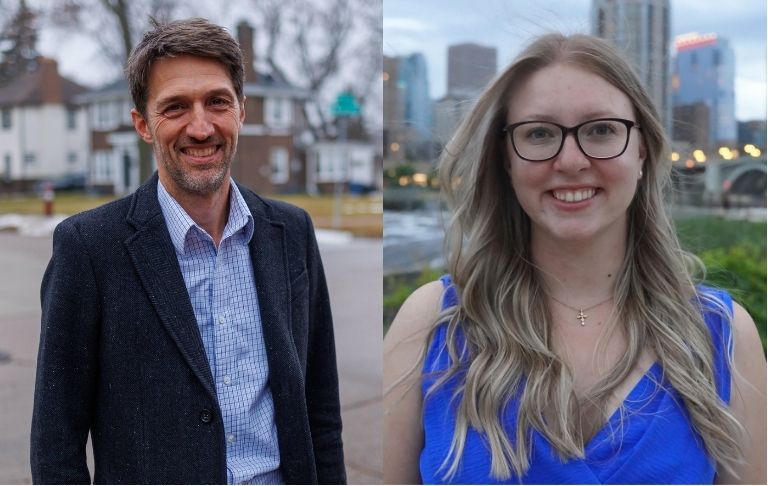


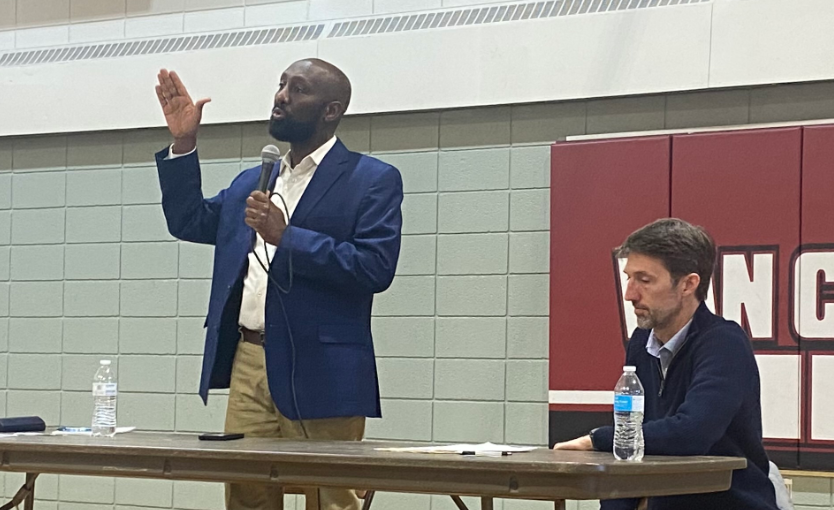
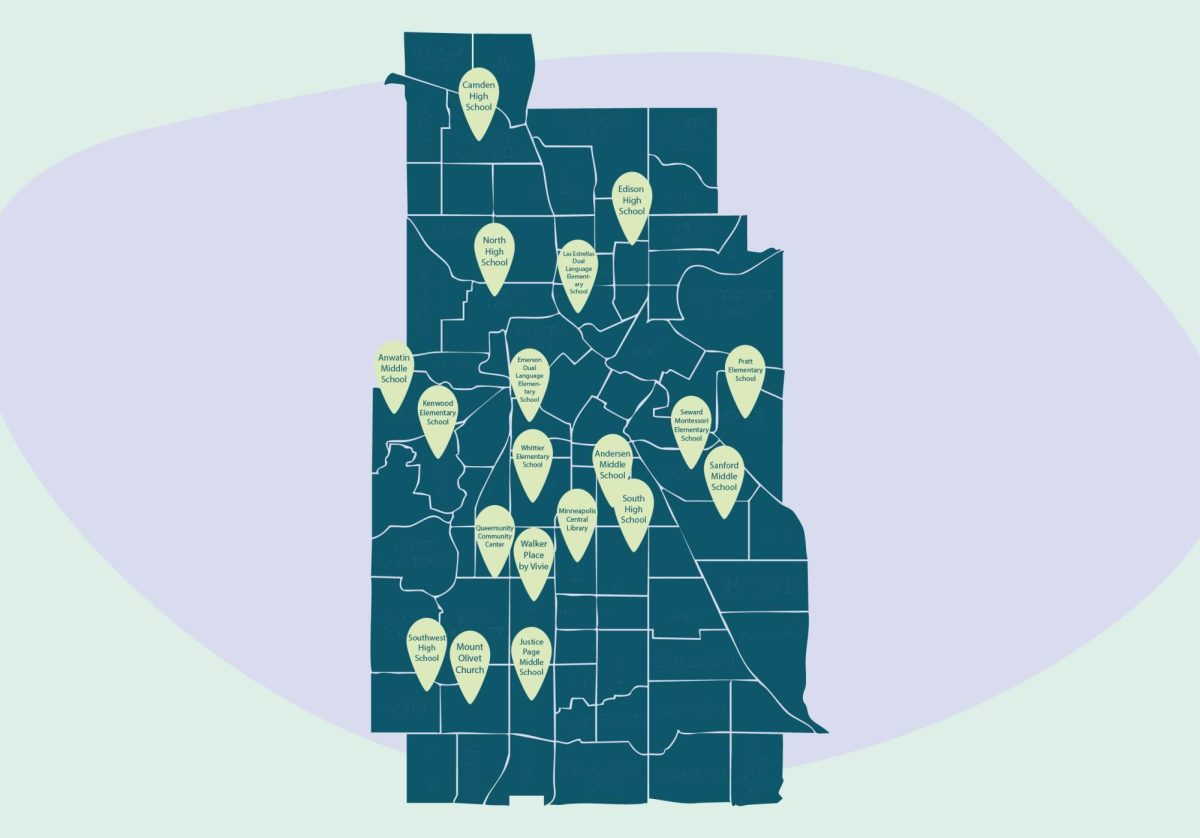
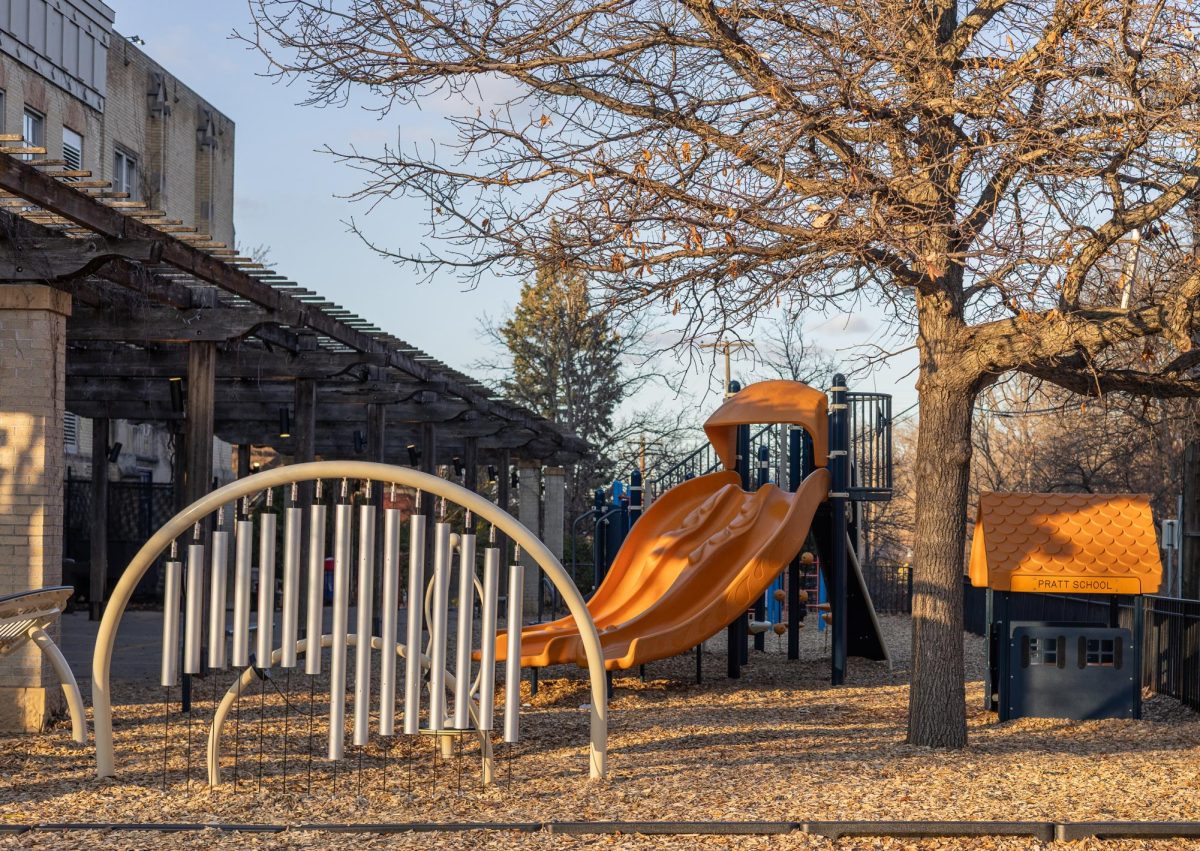








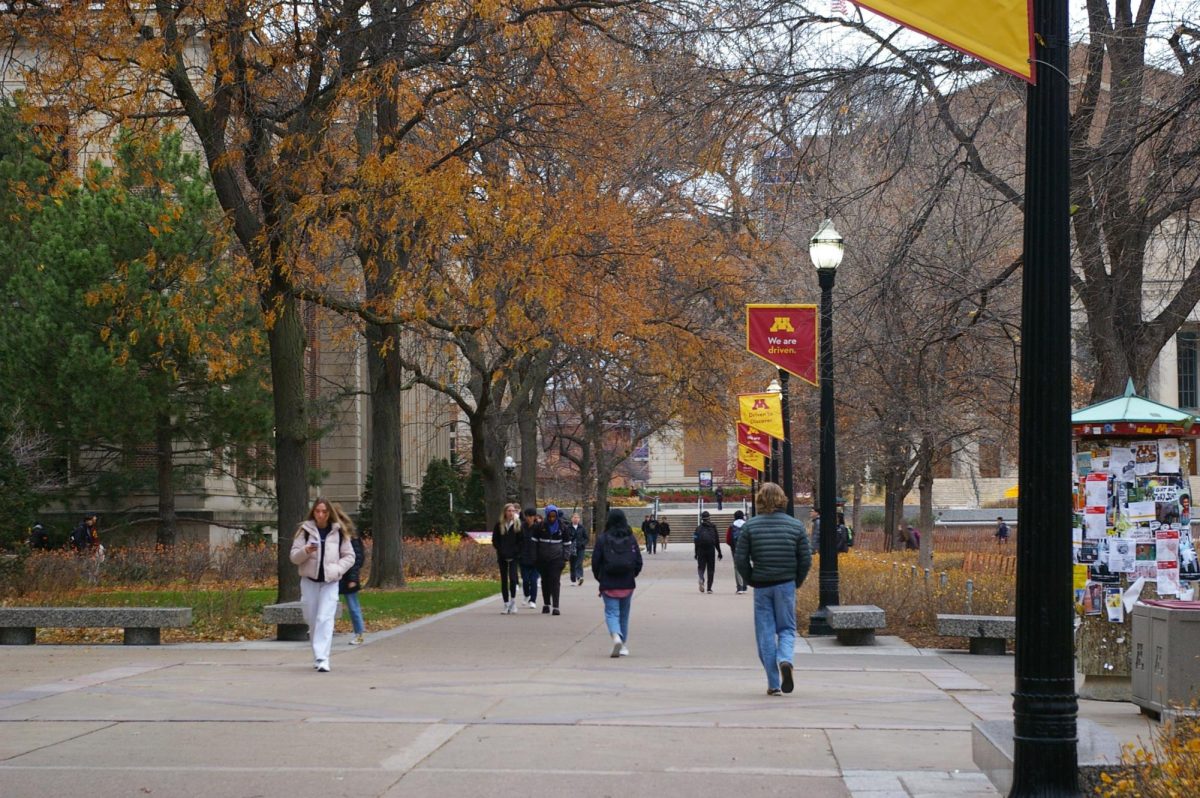

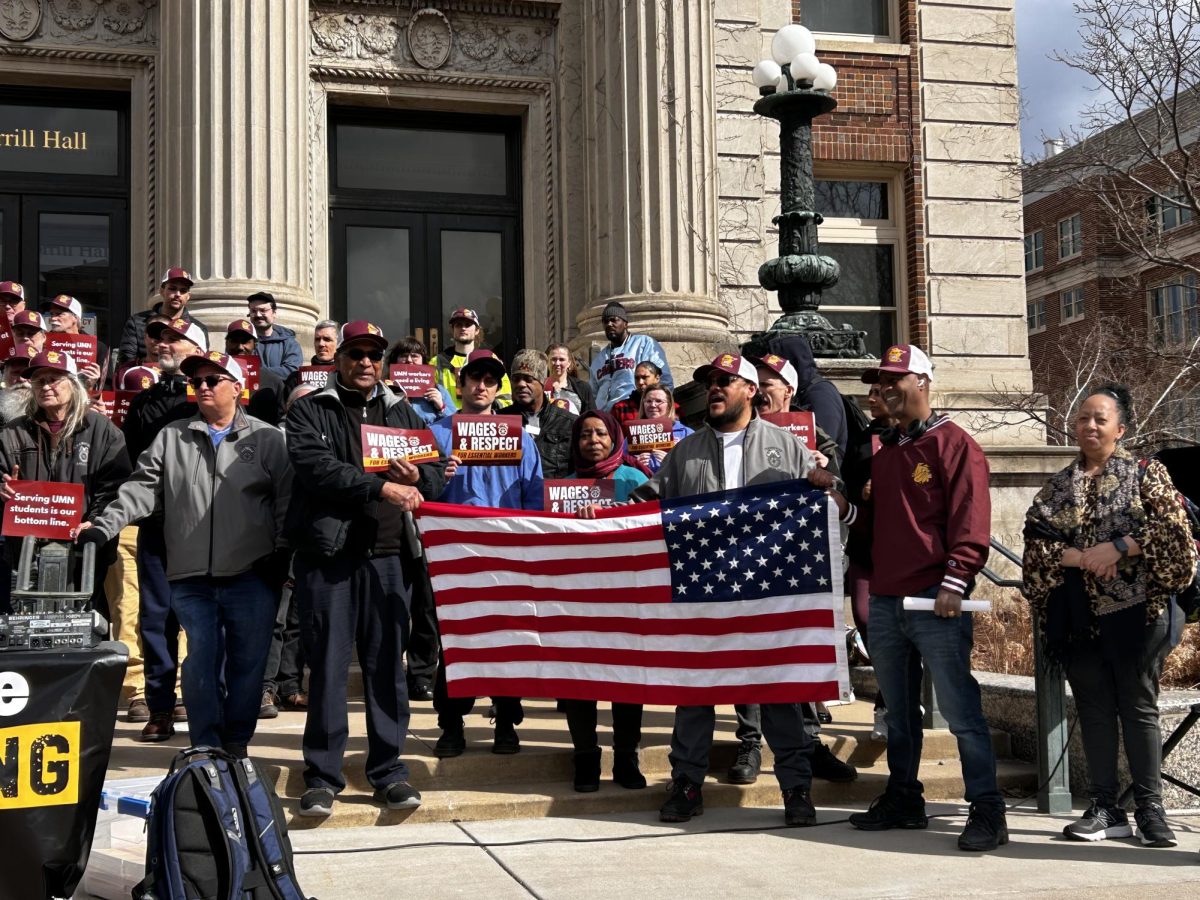

um
Jan 28, 2025 at 11:18 am
Ms Wolters sounds like she has no clue what causes student debt. It’s certainly not the fact that corporations and religious institutions pay way below their fair share of taxes. She’s clearly a proud Trump supporter so that’s a huge red flag. Entering politics appears to be a bit of a childish whim for her, like she just shrugged her shoulders and said, ‘let me try this’. I find her hard to take seriously.
Nuclear energy? C’mon, be real.